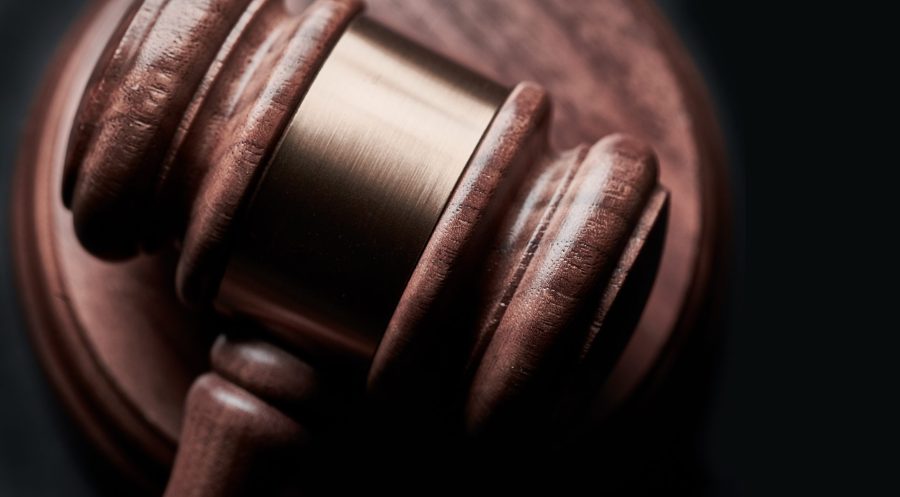A local San Diego judge released a tentative ruling on Oct. 23 granting that COVID-19 hotspots could remain undisclosed in spite of efforts put forth by petitioners from the Voice of San Diego, KPBS Public Broadcast, and The San Diego Union-Tribune. While the claimants argued that obtaining formal details of cases is imperative to contact-tracing in San Diego, the county made the case that full disclosure will negatively impact open communication in local communities.
The ruling was finalized on Nov. 19 by San Diego County Judicial Officer Joel R. Wohlfeil, who said that “cases” and “outbreaks” as defined by the California Code of Regulations are confidential and thus are protected from disclosure by local health officers. This means that such information cannot be disclosed unless consent is provided.
Judge Wohlfeil acknowledged the petitioners’ concerns at the end of the ruling, but felt that it was at the county’s discretion to choose to release the information.
“Reputable news organizations, such as the petitioners in this action, should be permitted to investigate and inform public opinion… However, given the express exemption in particular, [the county] is entitled to withhold the requested information,” Wohlfeil said.
The conflict arose in April 2020 when the Voice of San Diego, KPBS, and the SDUT submitted separate requests seeking documents related to the identities of victims of the virus and specific locations of the outbreak from San Diego County. Initially, the county didn’t act on the first few requests, but eventually produced a spreadsheet containing the requested information except the names and addresses of the location outbreaks.
In response to this, petitioners filed a stipulation — a condition specified as part of a legal agreement before a pending hearing — against San Diego County. They contended that the only information they desired was omitted from the spreadsheet and that access to information concerning how businesses are conducted is a fundamental right of every person in the state. They also said that such information is necessary to verify confirmed outbreak numbers put forth by the county.
“Without this data, the public remains in the dark about the efficacy, and veracity, of the county’s regular news releases regarding the current state of the COVID-19 pandemic within this region,” the petitioners argued in the reply brief.
In response, the county cited the California Code of Regulations in arguing that information regarding outbreaks cannot be released without the “written consent of the individual to whom the information pertains.” Additionally, they said that releasing outbreak information would disincentivize businesses to be forthcoming when self-reporting their outbreaks.
Sarah K. Sweeney, the San Diego County Communication Officer of the Health & Human Services Agency, said in an official statement that releasing the information would hamper both local businesses and the work of public health officials.
“Many people [that] investigators speak with are fearful that providing the name of the location where they were potentially infected [would have] negative effects on that location whether it be a church, a restaurant, or a place of business,” Sweeney said. “Releasing the names of these locations and the addresses will have a chilling effect on the open communication necessary to ensure the Public Health Officer is able to effectively combat active outbreaks.”
With the two claims undisputed by the petitioners, Wohlfeil ruled that the county is excused from providing the un-redacted location information as well as the identities of those who fell victim to COVID-19.
In an interview with The UCSD Guardian, Eleanor Roosevelt College first year Tyrone Neal voiced his initial thoughts that the ruling was made correctly.
“Honestly, I don’t see the grounds on which the media can make those demands because it does involve sensitive information,” Neal said. “I’d say it was the right decision by the judge because ruling any differently could affect many other situations involving the media and the deceased, potentially working against the families trying to protect their deceased relative’s privacy.”
On the other hand, Cameron Thomas, a John Muir College second year and an employee of UCSD Housing, Dining, & Hospitality, voiced his opposition to the ruling.
“Even though there are negatives, it is in my opinion that the public has a right to this information,” Thomas said. “Due to the demand to return to normalcy, communities need to be accountable for their role in spreading COVID-19. If these matters were made public, news outlets would be able to present data on which areas need to be improved as well as informing people [as to] where ‘COVID dense’ populations reside.”
UC San Diego’s Return to Learn initiative emphasizes a push for campus wide compliance with biweekly testing and other strategies to curb the spread of the virus, like wastewater detection and strict social distancing measures. The early detection system in place identified COVID-19 in the wastewater outflow in the five campus areas from 11 a.m. on Nov. 22 to 1 p.m. on Nov. 23. The university disclosed the five specific locations of the outbreak, ranging from the Seventh East Buildings 1, 2, 3, and 4 to Viento of Nuevo West.
UCSD students living on campus are provided quarantine or isolation housing if they have been potentially exposed to the virus. Those who are interested in learning more about campus safety guidelines are encouraged to visit the Return to Learn program’s website.
Photo taken by Bill Oxford for Unsplash
This article was updated on Nov. 29 at 3:16PM to clarify that the ruling was finalized on Nov. 19














